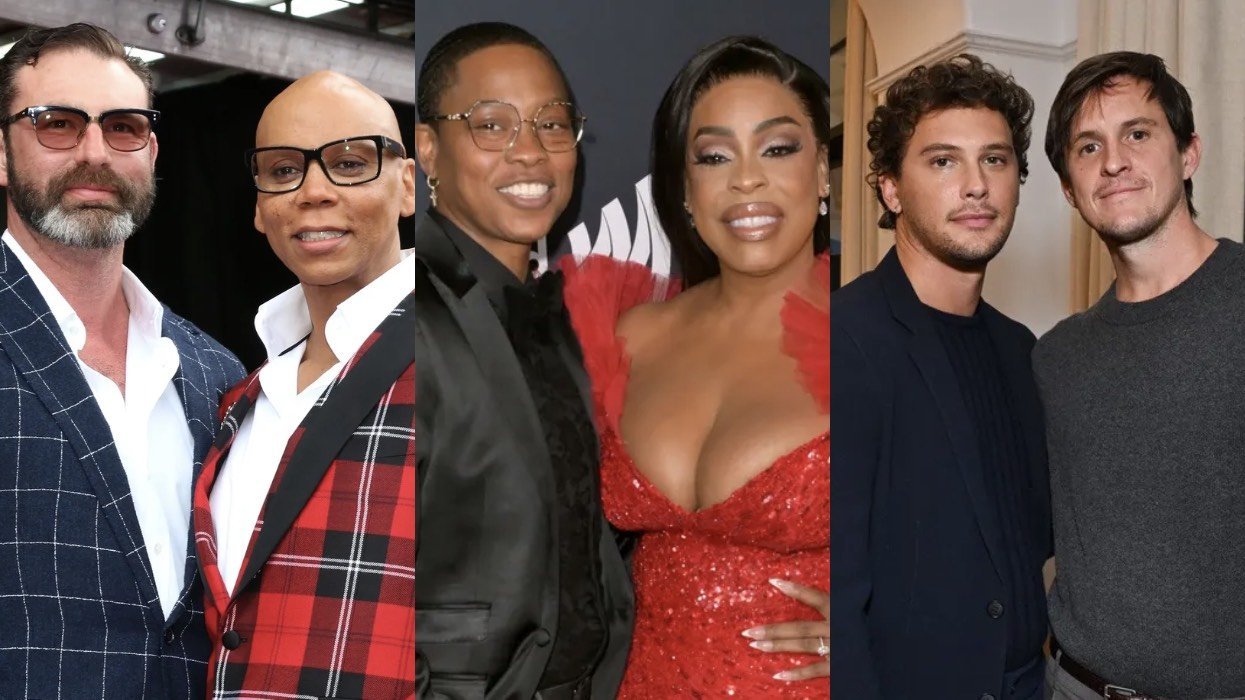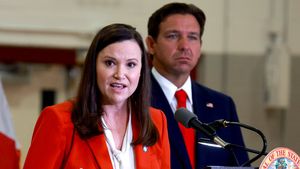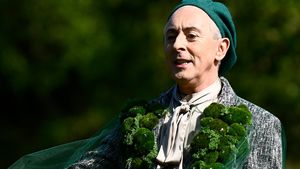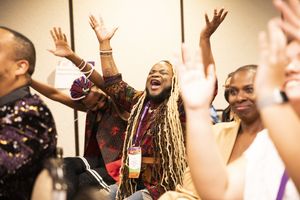Who she is: The first service member to win reinstatement after being discharged for being gay, and a longtime activist for LGBT rights.
What she’s accomplished: When Miriam Ben-Shalom graduated from drill sergeant school in Milwaukee in 1975, journalists were present to report on the historic occasion, as she was becoming one of the first two female drill sergeants in the 84th division of the U.S. Army Reserve. “After the graduation, a reporter asked me how it felt to be a gay person in the military,” Ben-Shalom recalled to The New York Times in 1989. “And I couldn’t see any reason to lie. What kind of leader would I be if I lied?”
Around that time, she also spoke out against the discharge of Tech. Sgt. Leonard Matlovich from the Air Force for being gay. “Thirty-four years ago, I was asked the question: Sergeant Ben-Shalom, are you a homosexual?” she told Karen Ocamb in an interview for LGBT POV in 2010. “I was asked because I had seen Leonard Matlovich’s picture on the cover of Time magazine in 1975 and I made the statement that I thought it was stupid — who cares what he did? Why did it matter? I was hauled into my commander’s office and I was asked the question and I refused to lie. I was not accused of misconduct nor was there ever an accusation of misconduct.”
This began a round of difficulties with the military in the era before “don’t ask, don’t tell,” when there was an even stricter ban on military service by LGBT people. She was discharged in 1976, but she decided to fight the policy and filed a lawsuit. In 1980 a federal judge ordered that she be reinstated, ruling that her discharge violated her constitutional rights to free speech, free association, and privacy. The Army, however, refused to comply with his order. Ben-Shalom continued to pursue reinstatement, and after an appeals court upheld the lower court’s ruling and threatened to fine the Army for contempt of court, she was finally reinstated in 1987 to finish her original tour of duty. “Once the people I worked with realized that I didn’t do it to sashay down the main drag of a military base wearing lavender fatigues, that what I really wanted to do was soldier — that I really wanted my job back — I can say that with one or two exceptions, that I served with very good people,” she told Ocamb. “The 84th Division Training at that time would have been a good role model for how to deal with gay soldiers. For the most part, I was treated fairly.” She received support, she said, especially from African-American soldiers.
Her attempt to reenlist in 1988 brought more resistance from the Army. A federal court ordered the Army to reenlist her, but the service appealed and extended her prior tour instead while still seeking to discharge her. “Ben-Shalom again served well — receiving a commendation and earning a promotion,” Ocamb wrote. But the court battles continued, and in 1989 a U.S. appeals court ruled for her discharge, saying her free speech rights did not apply to her acknowledgment of being gay; she could discuss homosexuality, urge the military to change its policy, but “what Ben-Shalom cannot do, and remain in the Army, is to declare herself to be a homosexual.” The court ruled that “forthright admission … reasonably implies, at the very least, a ‘desire’ to commit homosexual acts.” The following year the U.S. Supreme Court refused to hear her appeal. Kenneth Starr, later to become infamous for his investigation of President Bill Clinton, was U.S. solicitor general at the time, and he advised the Supreme Court not to take her case, saying that “since the Army’s concern is with the potentially disruptive effect of homosexual conduct, it is obviously rational to exclude homosexuals while allowing heterosexuals to serve,” according to the book Courting Justice by Deb Price and Joyce Murdoch.
Ben-Shalom’s military career was over, but not her activist career. She had a day job teaching at Milwaukee Area Technical College, but she devoted her off hours to advocacy for LGBT equality. She founded Gay, Lesbian, and Bisexual Veterans of America (later known as American Veterans for Equal Rights) in 1990 and was its first president. She also worked with Milwaukee-area gay groups. In the early 1990s, she organized protests to end the military’s gay ban, which Clinton had promised to do, but his efforts ended in the weak compromise of “don’t ask, don’t tell,” which was supposed to improve the situation of gay, lesbian, and bisexual service members but did not. She was arrested while protesting at the White House in 1993, but she was back there 17 years later, demonstrating to urge President Obama to end DADT, and she was again arrested. When the law was finally repealed in 2011, she wrote in The Huffington Post, “Amidst the celebrations, I hope my community will take time to remember those who came before and those who fought recently and lost. Remember, too, to remain watchful. Merely because something ends does not mean all will end well. Ask any of us who helped to make history about that.”
Ben-Shalom, now retired from teaching, lives with her partner, Karen Weiss, in Milwaukee.
For more information: Find Ocamb’s article here and the New York Times interview here. Go to The Huffington Post for a detailed biography of Ben-Shalom and her column on the end of DADT. Also, Ben-Shalom’s story was part of the 2011 film Don’t Ask, Don’t Tell, with actor-writer Marc Wolf portraying 20 service members to illustrate the harm caused by the military’s antigay policies. It’s available from Amazon Instant Video.
Choice quote: “You’d think from John McCain’s statements that we were purple and green with little orange polka dots and ate raw meat twice a day.” — Ben-Shalom to Ocamb in 2010, on the Arizona senator’s resistance to repealing DADT































































































































